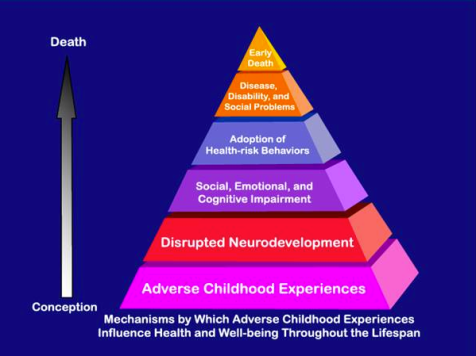This is the first of multiple posts regarding this issue. For years I have been puzzled by some individual’s inability to comprehend or fathom the rationale behind antisocial behavior i.e. Substance abuse, Prostitution, Homicide etc. Within seconds judgements are passed on these individuals, they are scorned, and even ostracised. No-one stops to think why these people behave this way.
Part of my love for Developmental Neuroscience and Psychology stems from the progress they have made in understanding and explaining the effects adverse childhood experiences have on an individuals well-being.
Toxic Stress
Toxic stress results from intense adverse experiences that may be sustained over a long period of time (Weeks, months and even years). Toxic stress is in one way manifested through child maltreatment which includes physical, sexual and emotional abuse and/or neglect.
Children are unable to effectively manage this type of stress by themselves. Consequently, the stress response system remains activated for a prolonged period of time. This can lead to permanent changes in the development of the brain.
The negative effects of toxic stress can be reduced with the support of caring adults. Appropriate support and intervention can help in returning the stress response system back to its normal baseline.
The Effects of Toxic Stress on Brain Development
Since, this post is merely an introduction, I shall highlight some of the findings and develop on them later.
The ability to manage stress is controlled by brain circuits and hormone systems that are activated early in life. When a child feels threatened, hormones are released and they circulate throughout the body. Prolonged exposure to stress hormones can impact the brain and impair cognitive and behavioral functioning in a variety of ways:
- Toxic stress can damage the connection of brain circuits and, in extreme cases lead to the development of a smaller brain.
- Brain circuits are particularly vulnerable as they are developing during early childhood. Toxic stress can disrupt the development of these circuits and cause the individual to develop a low threshold for stress, thereby becoming overly reactive to adverse experiences throughout life.
- The brains of children raised in violent families resemble the brains of soldiers exposed to combat.They’re primed to perceive threat and anticipate pain,. Whilst these adaptations may be helpful in abusive environments, they produce long-term problems with stress and anxiety.
- High levels of stress hormones, including cortisol, can suppress the body’s immune response. This can leave an individual vulnerable to a variety of infections and chronic health problems.
- Sustained high levels of cortisol can damage the hippocampus, an area of the brain responsible for learning and memory. These cognitive deficits can continue into adulthood.
Adverse Childhood Experiences

Research findings denote that childhood stress can impact adult health. The Adverse Childhood Experiences (ACE) Study is particularly noteworthy because it designates links between specific:
1) violence-related stressors (inc. child abuse, neglect, and repeated exposure to intimate partner violence) and 2) risky behaviors and health problems in adulthood.
The short- and long-term outcomes of ACE include a multitude of health and behavioral problems. As the number of ACE a person experiences increases, the risk for the following health
outcomes also increases:
- Alcoholism and alcohol abuse
- Illicit Drug Use
- Depression
- Chronic Obstructive Pulmonary Disease
- Fetal death
- Liver disease
- Intimate partner violence
- Multiple sexual partners
- Sexually Transmitted Diseases
- Smoking (inc. early initiation)
- Suicide Attempts
- Unintended pregnancies
- Underage pregnancies
As the number of ACE increases, the number of co-occurring health conditions increases.
In order for society to maximise it’s productive potential, it needs a well educated and healthy adult population that is sufficiently skilled to participate effectively in the global economy. A childhood rife of stress impacts children’s health throughout adolescence and adulthood. This bares a substantial cost to society, alongside other high profile public health problems. Increased understanding of the neurological and psychological mechanisms by which adverse childhood experiences can lead to adult dysfunction could help inform and improve practices in prevention, intervention, and treatment. Inevitably, these children grow to be members of the community and potentially parents and employees thus, it is essential the findings are construed and applied to real life situations.


Leave a comment